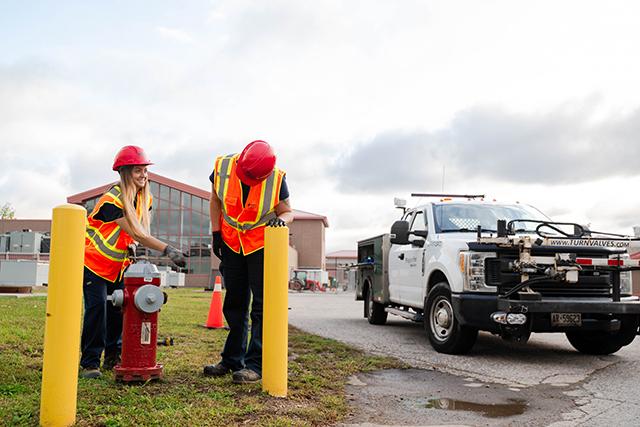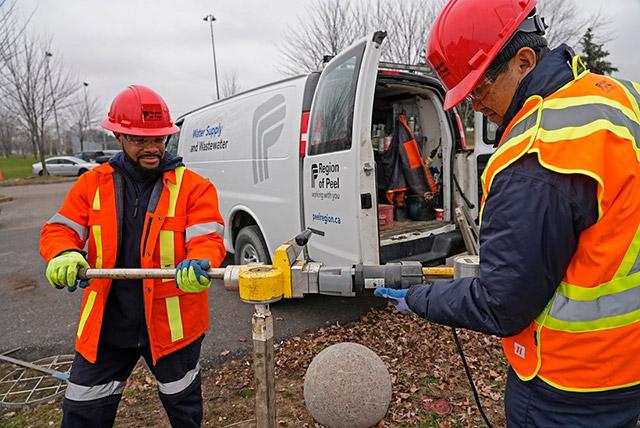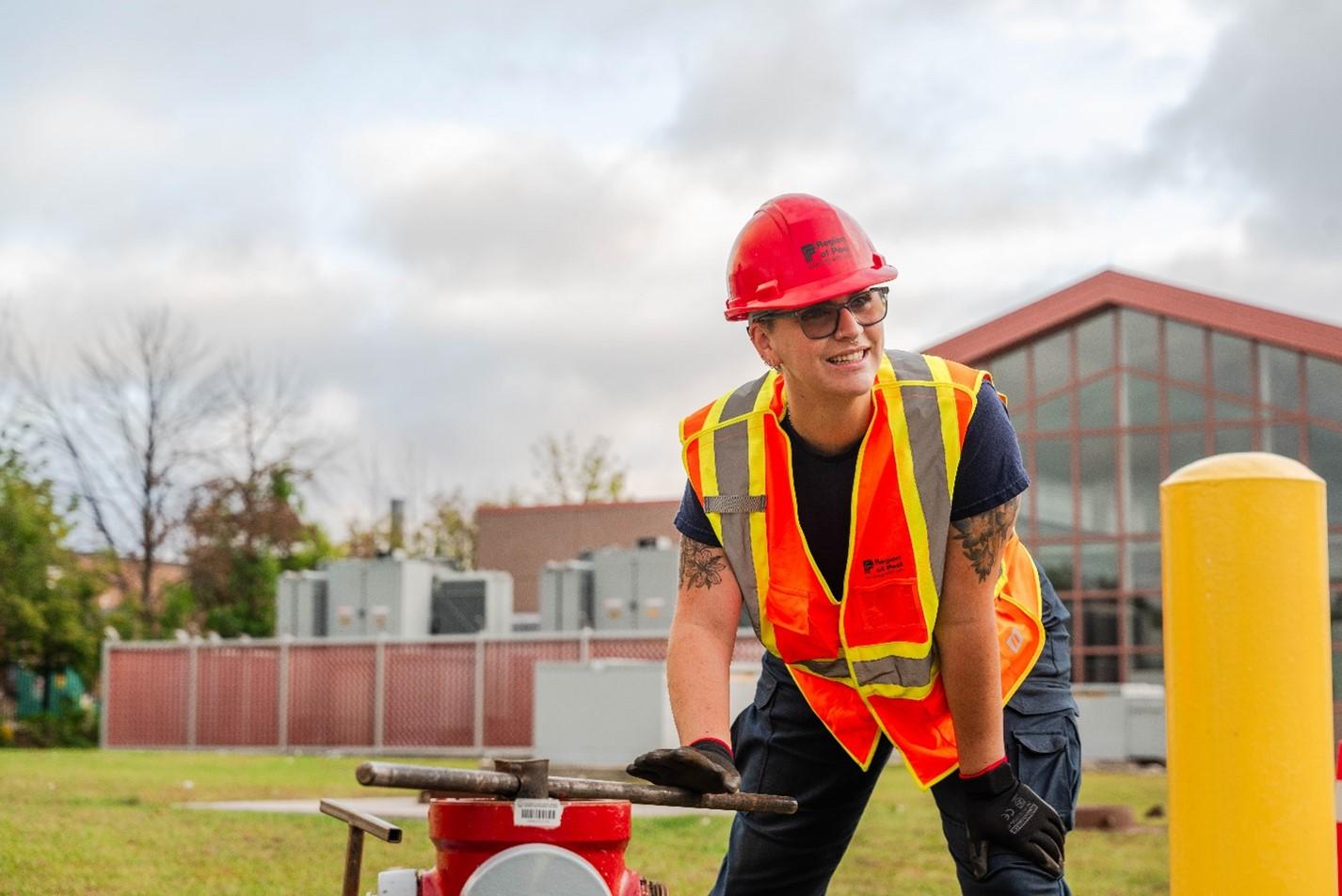Career spotlight: water and wastewater operator
There are many careers in water and wastewater, including project managers, engineers, forepersons, and operators.
Becoming an operator is one way to begin your water and wastewater career. Peel Region is a dynamic, collaborative, and innovative workforce and a leader in sustainability.
As a Peel Region water and wastewater operator, you’ll start each workday feeling valued, encouraged, and proud that you’re making a difference.
We offer and support:
- A healthy workplace.
- Professional development.
- Work life balance.
- High paying salary and benefits.
- A diverse workforce promoting equity and inclusion.
Learn and explore
Explore these resources about the importance of water and wastewater operators serving Peel’s residents and businesses:
The water and wastewater operator role is diverse. They must stay up-to-date on regulations, changing technology, and procedures through ongoing training and education.
Generally, they:
- Work in the field to treat and distribute water and collect and treat wastewater before it is returned to the environment. (They do not work remotely.)
- Repair pipe breaks and maintain our systems in good working condition.
- Help ensure the safety of our drinking water and protection of the natural environment.
More specifically, they perform a range of construction, maintenance, and operational tasks relating to water and wastewater treatment, water distribution, and wastewater collection.
Water treatment
Operators are responsible for the safety of our drinking water supplied to homes and businesses. They operate and maintain equipment within the water treatment facilities.
Water distribution
Operators inspect, maintain, and repair the water distribution system. They also operate and repair valves, fire hydrants, and watermains.
Wastewater treatment
Operators monitor, operate, and maintain equipment within the water resource recovery facilities in addition to ensuring that wastewater biosolids are collected and managed properly.
Wastewater collection
Operators inspect, maintain, and repair existing wastewater infrastructure. Additionally, they respond to sewer backups, perform sewer flushes, and repair sewer pipes.
A water and wastewater operator must:
- Be able to operate and maintain a variety of manual and power equipment.
- Have the readiness to work outdoors in all weather conditions performing heavy lifting and physical labour.
- Be able to work safely and follow all relevant health and safety legislation and regulations.
- Have excellent customer service while interacting with the public.
- Have a Class ‘G’ license in good standing with preference for ‘DZ’ or ‘AZ’.

Licence requirements
Operator-in-Training (OIT)
OIT certificates and licences are the first step for those intending to work in one or more of the following focus areas:
- Water treatment
- Water distribution
- Wastewater treatment
- Wastewater collection
OIT process
- Fill out the Operator-in-Training examination registration form.
- Submit proof of completion of Grade 12 or equivalent.
- Choose up to 4 focus areas for exam registration.
- To work as an OIT, you must hold the water distribution and wastewater collection OIT licences at a minimum.
- Regardless of the number of focus areas selected, the exam length and fees stay the same.
- Submit your exam application and buy applicable books from the OWWCO Examination Study Guide Store – Ontario Water Wastewater Certification Office.
- Write and pass (70%) your OIT exam.
- Apply for your OIT license.
For more information about the Operator-in-Training examination, refer to Operators – OWWCO.
Operator salary
- The Operator-in-Training (OIT) hourly rate ranges from $29.09 to $30.50.
- Level II and III Operator salaries range from $37.13 to $38.61 per hour, with increases in relation to experience and qualifications.
- Hourly premiums range from $4 to $7 per hour based on position.
- An OIT-certified Operator is a union position.

Operator hours
- 40 hours per week.
- A 4-day work schedule is currently in effect from Monday to Thursday or Tuesday to Friday.
- 10-hour days from 6:30 a.m. to 4:30 p.m.
Hiring process and timelines
The hiring process is completed over several weeks. It includes:
- An interview with the hiring panel.
- Verification of Operator-in-Training certificates.
- A driving assessment.
Career growth
Operators-in-Training will have the opportunity to gain hours and become certified operators, then build on their level of certification. Peel Region is supportive of operators learning multiple focus areas.
During the first year of employment, Operators-in-Training will gain 1800 hours of operational experience working in a municipal water or wastewater setting (or both) and be eligible to write their Class 1 Operator exam.
A successful exam score will result in an automatic promotion to an Operator position.
After receiving a Class 1 certificate in water or wastewater, Peel Region employees are trained in the alternate discipline until they have the work experience required to apply for their second Class 1 Operator license.
Employees can work and grow in 4 teams:
- Construction: repairing and replacing water service lines, watermains, hydrants and sewers.
- Maintenance: completing water and sewer asset inspections.
- Regulatory maintenance: conducting flushing, sampling and watermain commissioning.
- Customer service: investigating resident complaints.
